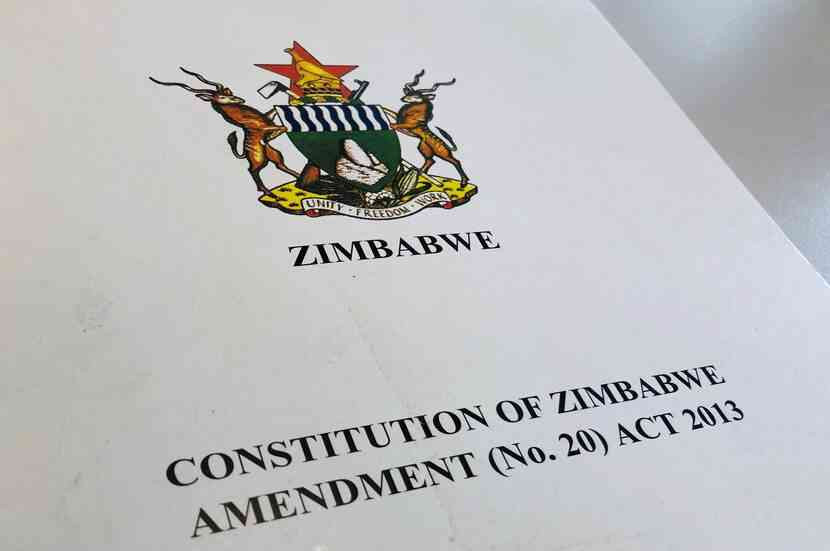
ZIMBABWE’S 2013 Constitution marked a turning point in the governance landscape by enshrining devolution as a principle of statecraft.
The intent was bold, to redistribute power and resources from Harare to provinces and districts, empowering local communities to participate in shaping their development.
Twelve years later, however, this promise remains largely aspirational.
Implementation has been piecemeal, stalled by legislative delays, overlapping authority and persistent central control.
The creation of Ministers of State for Provincial Affairs and Devolution appears, on the surface, to acknowledge this constitutional commitment.
Yet, on the ground, their roles remain ill-defined and bureaucratically entangled, often reinforcing central dominance rather than dismantling it.
Rural district councils and municipalities, which should be the engines of grassroots development, continue to operate under the heavy oversight of the Local Government and Public Works ministry.
Their budgets, tariffs and revenue streams require ministerial approval, restricting their ability to act with autonomy.
- Mavhunga puts DeMbare into Chibuku quarterfinals
- Bulls to charge into Zimbabwe gold stocks
- Ndiraya concerned as goals dry up
- Letters: How solar power is transforming African farms
Keep Reading
What persists is a lingering culture of administrative decentralisation, delegation and deconcentration rather than genuine devolution.
Central to this paralysis is the stalled Provincial and Metropolitan Councils Administration Bill, which is yet to be passed into law.
Without this enabling legislation, provincial councils remain legal shells, unable to exercise the constitutional powers envisioned for them.
This delay reveals a troubling policy incoherence.
Zimbabwe already has a Department of Policy Co-ordination and Development Planning within the Office of the President and Cabinet, mandated to align policies and ensure smooth implementation across ministries.
Yet, a decade after the Constitution came into effect, the failure to synchronise laws and frameworks illustrates a governance gap that should not exist.
Policy coherence is not a technical luxury; it is the very foundation of effective devolution. A sustainable path forward requires more than incremental adjustments.
Devolution must be anchored on a coherent framework that blends institutional reform, fiscal empowerment, capacity building, and civic participation.
One critical dimension lies in institutional clarity.
Enacting the Provincial and Metropolitan Councils Administration Bill is essential, but it must go beyond procedural fixes.
The law should clearly delineate the roles of provincial councils, local authorities and central ministries, removing duplication and conflict.
At the same time, other legislation such as the Rural District Councils Act, the Urban Councils Act and the Public Finance Management Act must be harmonised with the Constitution to provide a consistent legal foundation.
Without such legislative alignment, local governments will remain subordinated to central ministries, undermining the spirit of devolution.
Equally important is the question of fiscal empowerment. While the Constitution mandates a minimum 5% transfer of national revenues, allocations have been inadequate, delayed or eroded by inflation.
A stronger intergovernmental fiscal framework should provide timely and predictable funding, guided by transparent formulas that reflect poverty levels, infrastructure needs and regional disparities.
Beyond transfers, councils need the space to strengthen their own revenue bases through modernised billing, innovative financing models and public-private partnerships.
Councils should not only administer funds, but also play an entrepreneurial role, positioning themselves as engines of local economic development.
The effectiveness of devolution will also depend on institutional capacity and modern systems.
Councils face acute shortages of technical skills in planning, engineering, auditing and financial management.
Without addressing these gaps, additional resources risk being mismanaged or underutilised.
A dedicated national capacity-building programme, supported by universities and training institutes, could professionalise local administration and cultivate the expertise needed for effective service delivery.
Similarly, harmonised digital financial management systems should replace the current patchwork of accounting platforms, ensuring funds are traceable, audits are enforceable and corruption risks are reduced.
Finally, devolution will only succeed if it is rooted in citizen participation. Communities must understand what devolution entails and have structured avenues to influence local priorities.
Public education campaigns, translated to all official languages, are essential to demystify the process.
Mechanisms such as participatory budgeting, community scorecards, and open data portals can give citizens direct oversight of their councils.
In this way, accountability flows not only upwards to ministers but downwards to the people councils are meant to serve.
Taken together, these elements form an integrated Devolution Implementation Framework, one that blends institutional reform, fiscal responsibility, capacity development and civic empowerment.
It is not merely a theoretical model but a practical roadmap, informed by comparative experiences from Kenya, South Africa and Botswana, yet adapted to Zimbabwe’s political and economic realities.
Devolution was never intended to be symbolic.
It was designed to reduce inequalities, unlock local innovation, and foster inclusive growth.
By continuing to delay enabling legislation, centralise authority, and overlook institutional capacity, Zimbabwe risks undermining the very development agenda it has set for itself in Vision 2030.
The contradiction is stark: a country with institutional mechanisms for policy coordination nonetheless struggles with policy incoherence in one of its most important governance reforms.
The choice before Zimbabwe is clear.
Devolution can either remain an unfulfilled constitutional promise, trapped in political hesitation and bureaucratic inertia or it be embraced as a transformative model of governance.
If the latter path is chosen, it will revitalise provinces and districts, reduce regional inequalities, and restore trust between citizens and the State.
- John Laisani is a research fellow at the University of South Africa, managing director of Laisani Consulting and Advisory and an advocate of the High Court of South Africa. He is an inter-disciplinary researcher with a background in Law and a PhD in Mining and Environmental Geology, with research interest on mineral beneficiation and value addition, economic geology, mineral resource governance, environmental sustainability, renewable energy and sustainable development. He writes here in his personal capacity as a researcher. He can be contacted at [email protected].










